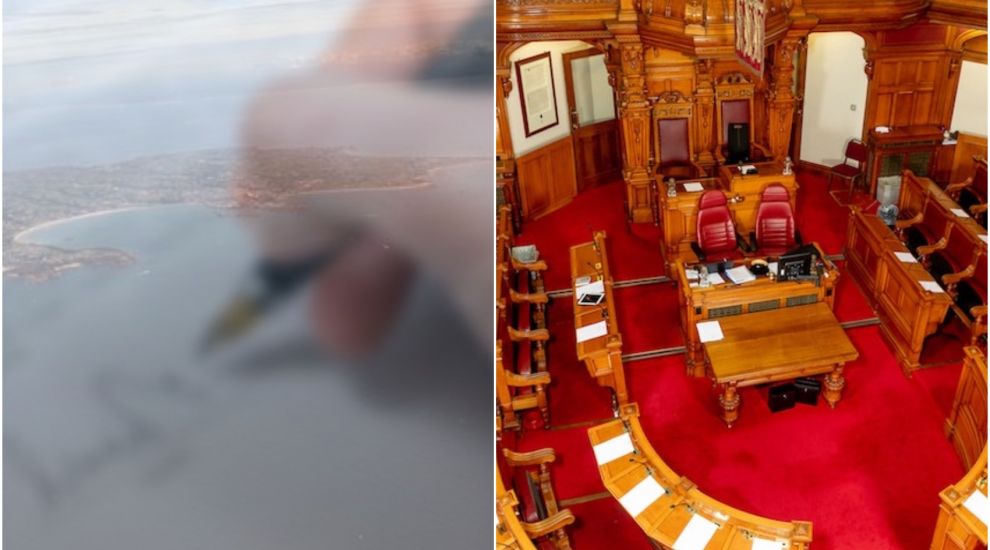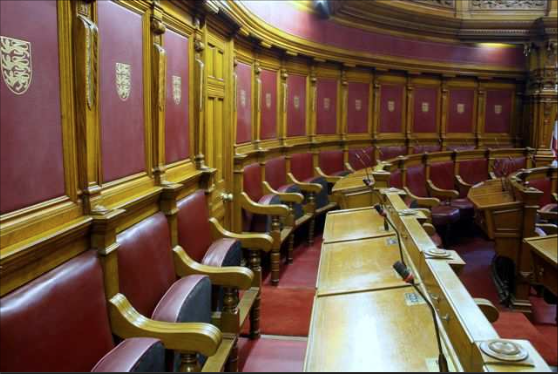


The Chief Minister has said it is “exceptionally likely” that a new law to enable public inquiries won’t be ready by the end of this States Assembly’s tenure.
Senator John Le Fondré said that whilst some changes to Standing Orders - the rules governing the running of the States Assembly - could be made to help the change before elections, the overall law would likely not be prepared in time due to the legal complexities involved.
It comes after a consultation into a first ever Public Inquiries Law was launched a month ago, setting out a series of proposals around funding and process.
The consultation coincided with a number of calls for a public inquiry into covid, including from a Jersey-based Brigadier.
Answering a question from Senator Tracey Vallois in a Scrutiny hearing on Friday, however, the Chief Minister said there were “over 80 pages of instruction” included in the “complicated” law, making it unlikely to be fully prepared and voted on until after the elections.

Pictured: In a Scrutiny hearing on Friday, Senator Le Fondré said that it was "exceptionally likely" the law would not be ready by the end of this Assembly's tenure.
“…One of the issues, I’d suggest, and I’m thinking of all politicians here, is that if there was a public inquiry into the handling of covid in, let's say, three or four years time - whatever it is - it’s very much a 'looking back' scenario,” Senator Le Fondré said.
“Some of the issues that would need to be considered for any ministers, former ministers, Chairs of Scrutiny Panels, perhaps any member of the Assembly, any officials that might have retired, or whatever, should have firstly adequate access to their data - so e-mails and things like that of the time we were looking at, if we were looking at covid, for the sake of argument.
“And also the advice that we’ve had is that, because of the nature of these inquiries, you are still capable… of being prosecuted as a result of evidence that you might give at a public inquiry, therefore one would suggest depending on the circumstances that witnesses might require legal representation.
“That legal representation, as I understand matters, could not be given, for example, by the Law Officers’ Department, so you might want to make sure that there are appropriate arrangements in there bearing in mind you are looking at retired officials who are being quizzed on their decisions they made when they were in Government or maybe even non-executive members, or whatever.”
“So the view I have is that that does need to be addressed, and so there are some suggestions that we are just exploring that in the event the inquiries law does not make it to the assembly before the election which I’m told is exceptionally likely, that we may look at.
“There are two or three options we can do to get some of these issues just covered off before the election by reference either internally or by reference to the Assembly. So it might, for example, be a change to standing orders or whatever that we need to have a discussion with PPC about.”

Pictured: The Scrutiny hearing also saw officials say how regulations to enable a full Public Services Ombudsman would not be finished before the election either, but that an 'in principle' debate could be had by this Assembly.
The admission came during a hearing in which multiple delays to new legislation, including the long-awaited Public Services Ombudsman, were highlighted.
The States Assembly agreed in 2018 that an independent public services watchdog would replace the current Complaints Board, but the Legislation Advisory Panel (LAP) – a group of politicians tasked with considering legislation matters that do not fall under the responsibility of a particular Minister – decided not to support that view.
In the recent past, more pressure has been applied to introduce the ombdusman, with the Chair of Complaints Board, Geoffrey Crill, stating in November 2020 that “an ombudsman with effective power” should be appointed urgently.
The latest delay to finished regulations to enable an ombudsman was put down to law drafting resources being taken up by Brexit and fishing, even with extra resources being brought in from June to help.
In Friday’s hearing, it was suggested by both the Chief Minister and Group Director of Policy Paul Wylie that, instead, an “in principle” debate could be had by the States Assembly on the topic of having an ombudsman before the election.
It was additionally confirmed that, once a Public Services Ombudsman was in place, the regulations would allow for the creation of a separate Health Services Ombudsman too.
Comments
Comments on this story express the views of the commentator only, not Bailiwick Publishing. We are unable to guarantee the accuracy of any of those comments.